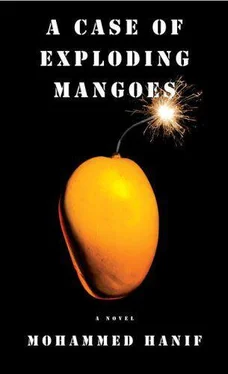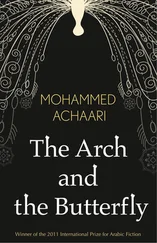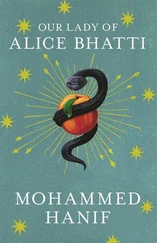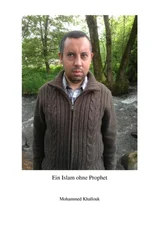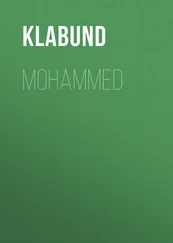I snatched the map from him, flung it over my shoulder and stared into his eyes. He stared back unblinking. I thought of telling him about Uncle Starchy’s nectar but immediately decided against it.
“Colonel Shigri didn’t kill himself and I am not about to,” I said. Then put my mouth to his ear and shouted at strength 5: “Is that clear?”
Screw my inner cadence, I thought.
“Is that clear?” I shouted again.
He pressed his ear over my mouth, leaned into me, and put his hand on my waist.
“If you want to do it here, you’ve got to have me in the squad. You need a back-up.”
I removed his hand, took a step back. “Listen, stick to your Rilke or whatever you’re reading these days. What are you going to do? Hey, look, this is my sword, here comes the General, look, I am taking a swipe.” I did a limp-wristed mime with an imaginary sword. “Oops, sorry, I missed. Can I have another go?”
I think I killed him with those words.
I didn’t see his fist coming at my guts, and as I doubled over, his knee hit my ribs and sent me reeling onto Bannon’s bed, face down. I found myself sprawled on the heap of bamboos and the camouflaged canopy. The surprise of being hit by Baby O was so overwhelming that I didn’t feel any pain. The Bruce Lee poster blurred for a moment. Obaid came and stood over me and looked down as if he had never seen me before. My boot caught him between his shins and he fell beside me.
I rubbed my lower ribcage and sighed. Obaid propped himself up on one elbow and watched me closely. He sat up suddenly as if he had made up his mind about something. Planting both his knees around my hips, he started to pull my vest out of my trousers. He gently rubbed my lower ribcage with both his hands, all the time looking into my eyes. I didn’t like him watching my reactions so I closed my eyes, my hips raised themselves involuntarily and my starched khaki trousers suddenly felt very tight. I hoped Bannon would take his time filling out that report.
He moved my vest upwards, the chilled air sent shivers through my chest and my nipples turned shamelessly erect and purple; my belt was unhooked. I sucked my stomach in and held my breath as his hand wandered into my pants. He didn’t hold me, just let the back of his hand rest against my cock as if it was a chance encounter. I was scared of the lips that were gently brushing their way towards my chest. I was scared of being kissed.
I breathed in the smell of jasmine oil from his hair and sank back into the mattress; a bamboo crunched under me and I tried to get up in a fit of panic. His hand in my pants pinned me down. His lips travelled along the outline of my jaw, his fingertips made tiny, airy circles on the tip of my cock. I groaned and my hips began to move but he pressed me down with his knee. His lips traced my ribcage and kept travelling downward. I did some hard thinking with my eyes shut. There is a stream near my house on Shigri Hill; I found myself standing in it during the winter, testing my first erection against the ice-cold water. My body leapt up and my cock touched the tip of his nose and he laughed.
There was more surprise for me as he wriggled out of his pants and took my hand to his cock. I found myself tracing a curve, not just a slight curve, but the semicircle of a new moon. His cock was bent like a bow and his erection arched towards his navel. He sighed and lay down beside me. His eyes were shut and a gentle smile was spreading around his lips, a smile so serene, so full yet gentle, that he seemed to have retreated into his world where the wind whispered in his face and the ocean beneath him was still.
I didn’t dare speak for a long time. The air conditioner turned off at some point and the only sound in the room was that of two scared boys breathing.
“No. No,” he whispered in the end, cupping me in his hands in a futile attempt at not leaving any traces on the bed. “Not on the sheets.”
He spoke with his face staring up at the ceiling. “You wouldn’t do anything stupid.”
“And you will not do anything fucked up,” I said.
“I wouldn’t,” he said.
In the morning he was gone.
Even if Zainab wasn’t blind she would not have been able to read her own interview in the newspaper because she was illiterate. Her news came from smells, birds, textures of the wind. And this morning she could feel the bad news in the air. She could hear the sound of impatient birds in the wind, she could feel migration and long lonely nights marching towards her.
She held her breath for a moment, ignoring the portents that floated in the air, and tried to concentrate on the job at hand.
Zainab stood pressed against the iron bars of her cell, breaking little crumbs from a piece of bread and throwing them to a group of sparrows who descended on the jail every morning. Like many blind people, she could count the number of birds by listening to the fluttering of their wings. There were probably fifteen of them. They were picking playfully at the crumbs, their hunger already satiated because there was enough food for them in the jail. Every morning there were a number of women with pieces of leftover bread, their hands stretching out of the iron bars trying to entice the same set of sparrows, hoping to see them peck at the crumbs, and with some luck to get them to pick the food from the palms of their hands. This morning though, the sparrows were more interested in playing with each other.
Zainab didn’t feel like the other inmates on death row; they prayed, they cried, they obsessively followed the progress of their petitions for mercy, and after their last appeal was denied, they turned their attention to the afterlife and started seeking forgiveness all over again. Zainab had committed no crime and she was comfortable in her cell — called the black cell because it accommodated death-row prisoners — and she lived in it as if it was her home. She had woken up this morning, cleaned her cell, massaged her pregnant cell mate’s feet and put oil in her own hair. After feeding the birds she would visit other cells, which were not black cells, and massage the feet of two other pregnant prisoners. “Why would anyone want to kill a poor blind woman?” was her recurring answer to all the excitement that her lawyer and other women’s groups outside the jail were creating about her death sentence. Even the jailer respected her for her politeness, the way she helped other prisoners and taught their children to recite the Quran. Zainab was the jail superintendent’s favourite prisoner and it was she who had given her the pair of sunglasses that so infuriated General Zia. “They will protect you against the sun.” Zainab had accepted them with a smile without complaining, without showing any self-pity, without pointing out that sunlight couldn’t enter the dead white pools that were her eyes. Behind the plastic sunglasses her eyes were all white. She had been born without corneas. There was the obvious talk of bad omens when she arrived in this world but her face was so luminous and her other faculties so intact that she had been accepted as an unfortunate child and she had made the most of her circumstances. Even now that she had become the first woman to be sentenced to death by stoning under new laws, she had shown a puzzled fortitude that baffled women activists who were fighting her case in the courts and on the streets. “Stoning?” she had asked after she was sentenced. “Like they do to the Devil in Mecca during haj? They have been doing it to him for centuries and they haven’t been able to kill him. How are they going to kill a healthy woman like me?”
After wearing the sunglasses for a few days Zainab had started liking them; they helped her with the headaches she got after standing in the sunlight for too long. And the other prisoners’ children always giggled when she took them off to show them her milk-white eyes.
Читать дальше
